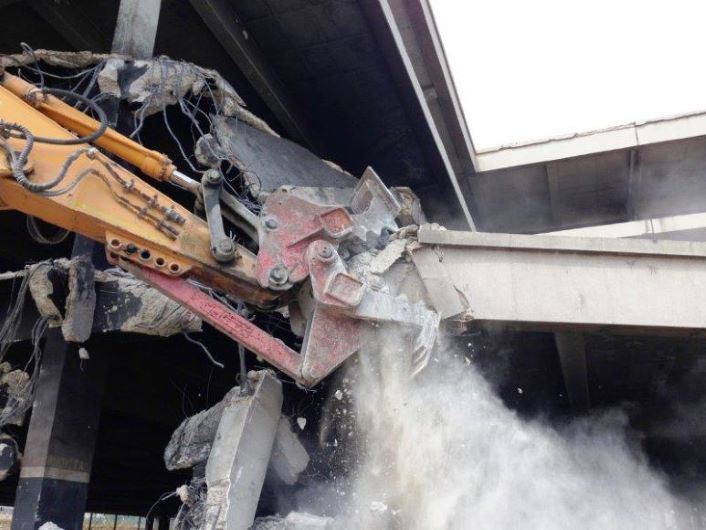

The capital construction industry in South Africa is at a crossroads, with declining activity and productivity and a bleak future outlook.
Efforts are needed to turn the industry’s fortunes around, Construction Industry Institute-Africa (CII-Africa) director Dr Giel Bekker said on the sidelines of CII-Africa’s Capital Projects in South Africa at a Crossroads – Mapping a Way Forward workshop, in Pretoria, on Monday. Following the surge in projects before the 2010 FIFA World Cup, the South African capital project environment has witnessed a steady decline. This has been complicated further by some prominent construction companies offshoring their business or going into business rescue and even bankruptcy.
This will impact on skills migration and depletion, resulting in the long-term shortage of capacity to deliver on capital project investments. There are various factors, including political uncertainty, investor caution, construction industry restructuring and market and legislative conditions that contribute to the difficult position the industry finds itself in.
Therefore, the workshop engaged project owners, funders, consultants and contractors from the private and public sectors on mapping a way forward for the industry. This will be taken forward to bigger workshops, to maintain and increase the capacity and productivity of the capital projects industry. North West University School of Business and Governance Professor Raymond Parsons indicated that the capital projects industry faced unique challenges that often mirror national challenges.
In 2017, there was synchronised world economic growth – growth rose in every advanced economy bar Britain’s, and in most emerging economies, bar South Africa’s. A year later, this changed to a world economic problem of uneven momentum. The US economy has surged to high growth, but the IMF expects growth will slow in every advanced economy including China, as well as in emerging markets.
This divergence between the US market to the rest of the world means divergent interest rates, which impacts on emerging currencies. This contributes to trade tensions such as the stand-off between China and the US, which is bad for the global economy. “Those emerging markets that suffer the most from global headwinds are those that are the most vulnerable.”
Therefore, industries in the country need to get [themselves] in order to [withstand those] headwinds, because the country cannot do much externally, but can reinforce internally, emphasised Parsons. He indicated that consensus for the country’s economic growth for this year is about 0.7%, but that South Africa should be capable of much more and that that growth rate was not enough for the country’s current needs.
Although recent years have seen some achievements for the country’s economy, its performance has been damaged by a number of factors, weakening the country’s global competitiveness and eroding investor confidence. Parsons highlighted recent building blocks for recovery and reform in the South African economy, including President Cyril Ramaphosa’s stimulus package; the Jobs summit held last month; the appointment of Tito Mboweni as Finance Minister; the Medium-term Budget Policy Statement; and the Investment conference held last month.
There are also efforts by government to pursue the creation of a South African infrastructure fund. While this will not necessarily be new money, it would provide a source for capital, said Parsons. Parsons also highlighted the ‘user pay’s principle in financing certain infrastructure projects, such as roads, which, if this government could get to be accepted or even partially accepted, could open up more capital infrastructure projects.
The industry must reorganise itself not just to fend off uncertainty and global issues and the macro environment, but to capitalise on opportunities and play a more effective role, he concluded.
More news
- PART 2: HARNESSING THE POTENTIAL OF HIGH SULPHUR FLY ASH IN CONCRETE PRODUCTION
- PART 1: HARNESSING THE POTENTIAL OF HIGH SULPHUR FLY ASH IN CONCRETE PRODUCTION
- PART 2: DESIGN AND CONSTRUCTION OF SLAB-ON-GROUND: APPLYING ACI 318
- DESIGN AND CONSTRUCTION OF SLAB-ON-GROUND: APPLYING ACI 318
- DOK-ING’s innovative electric mining equipment unveiled at ElectraMining





